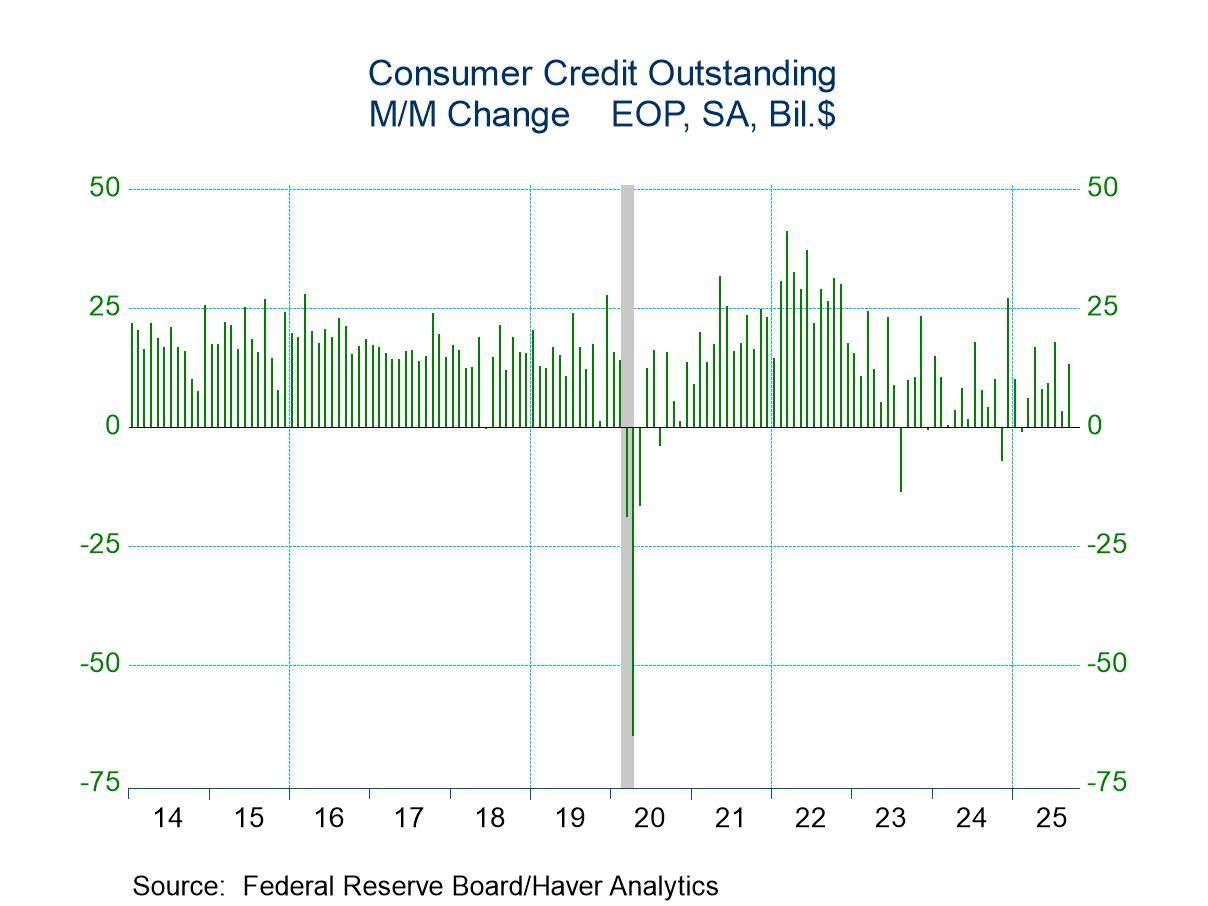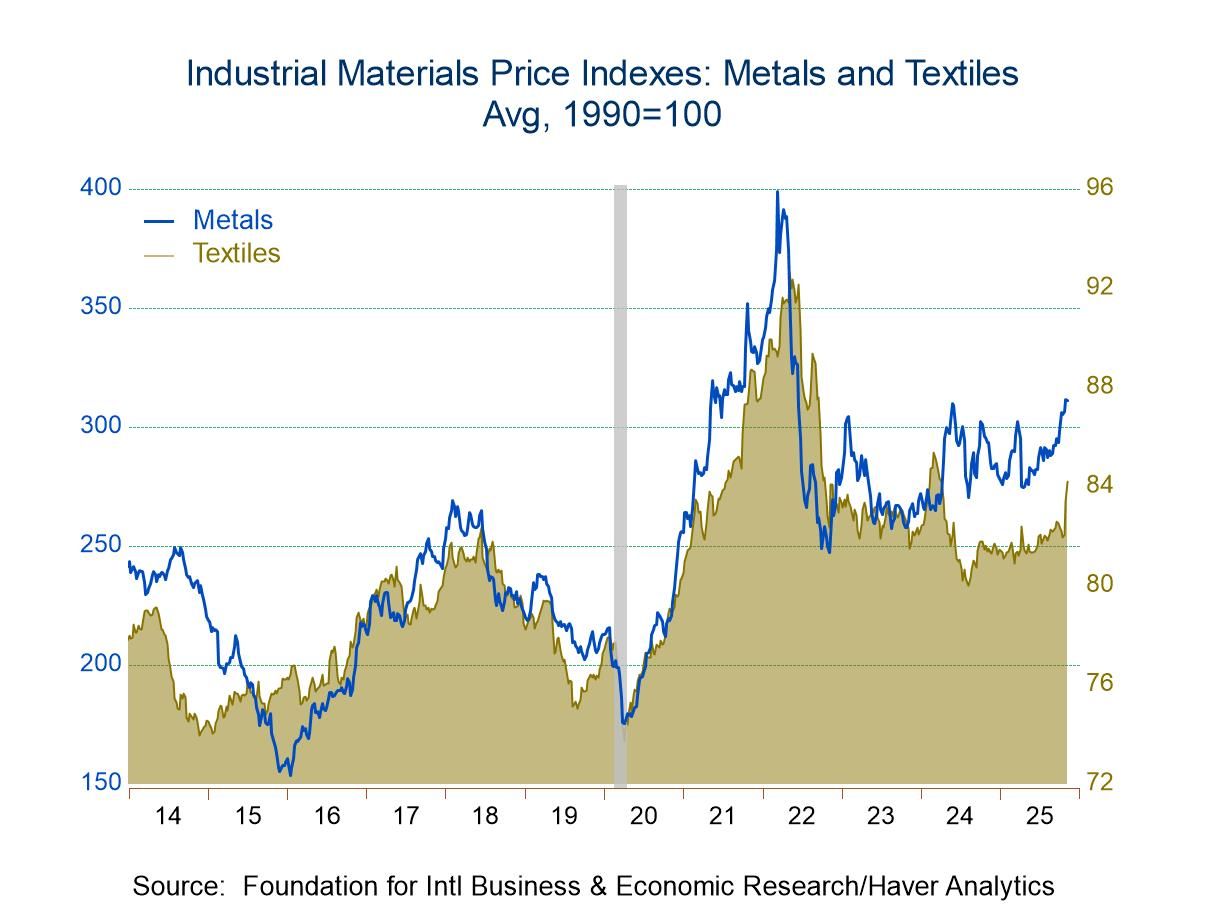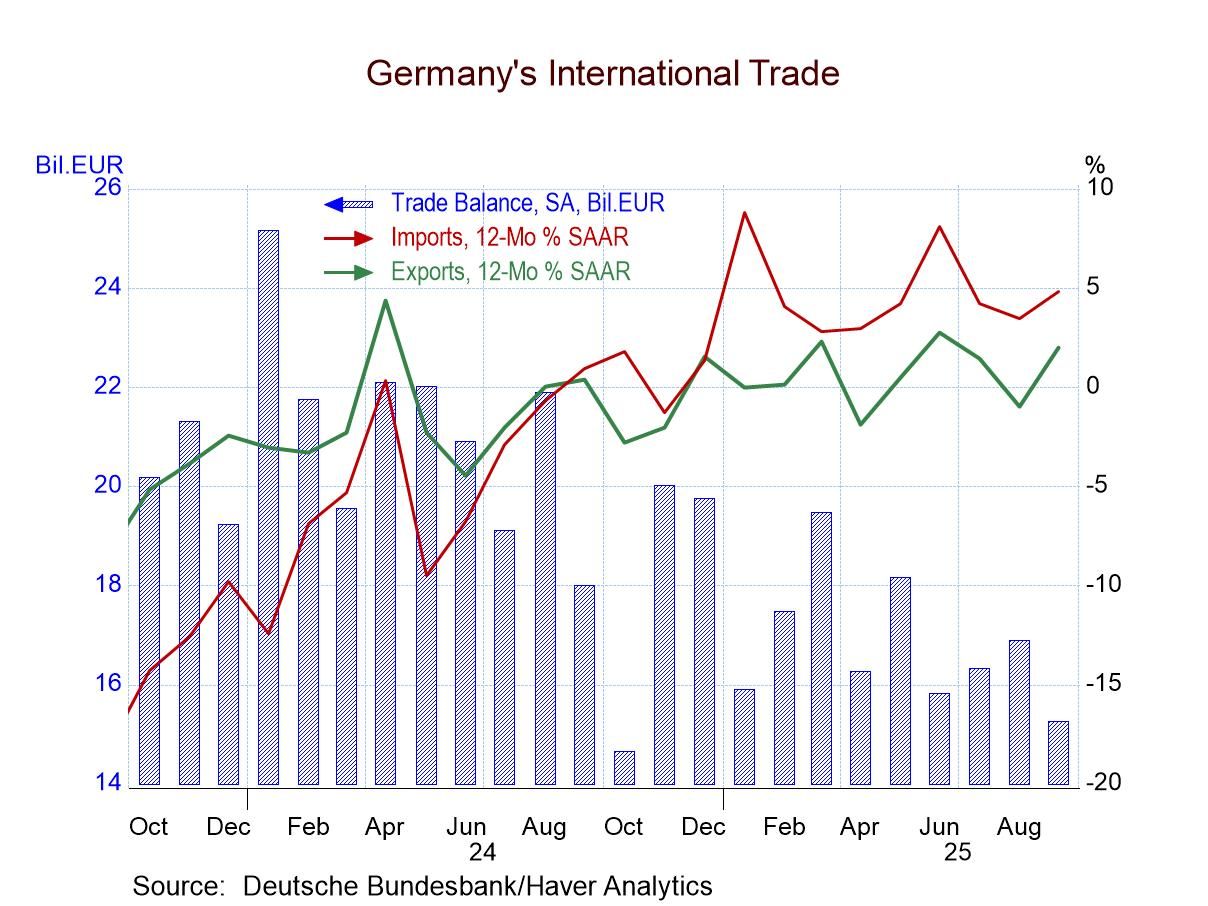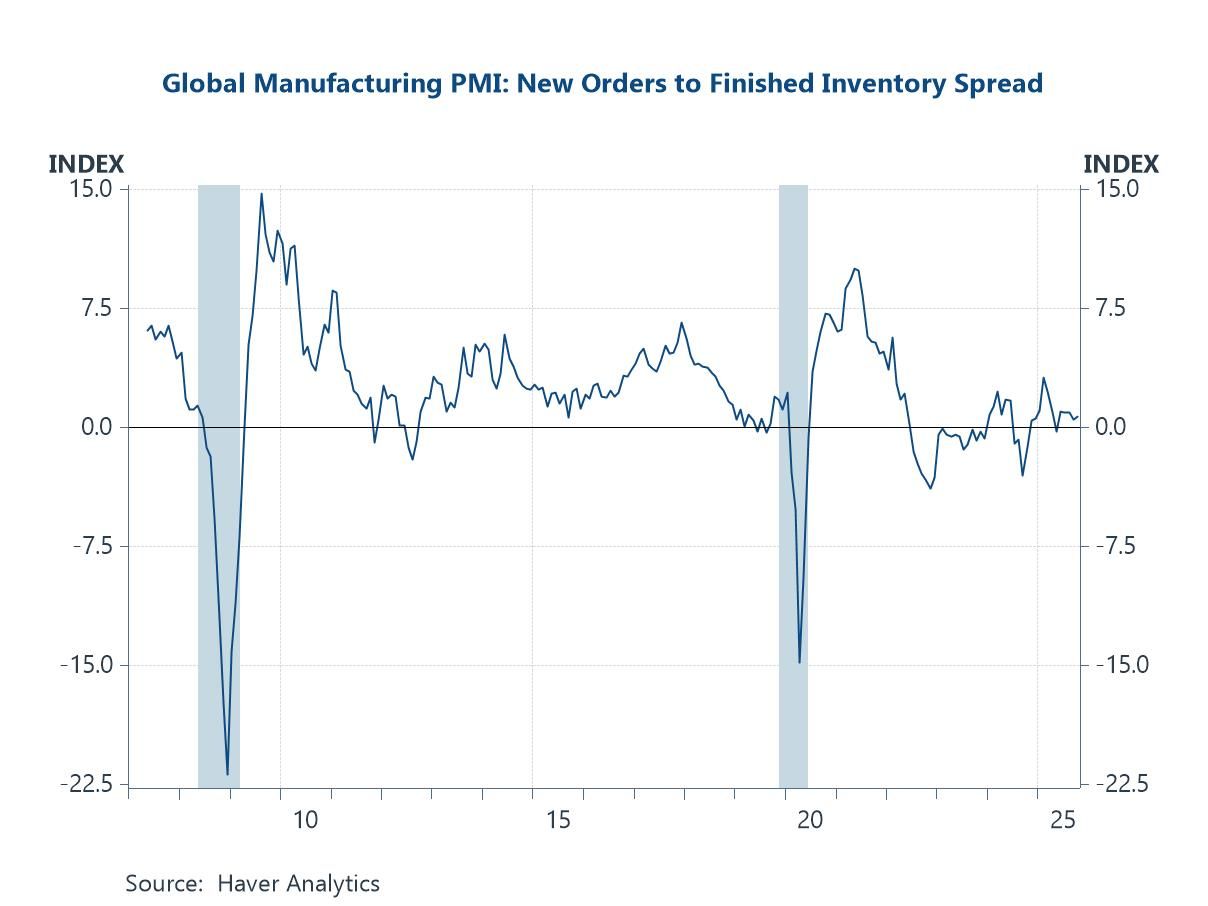 Global| Aug 23 2007
Global| Aug 23 2007Belgian National Bank Index Declines in August
Summary
The BNB index fell to 3.3 in August from 4.2 in July and, along with the German Zew index, it gives us a signal of softening activity in the Euro area. However the decline in the index is not severe and the Belgian metric continues to [...]
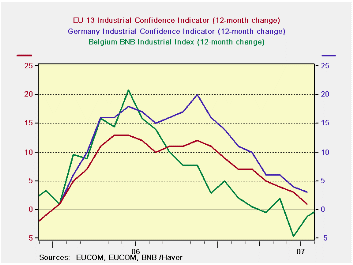
The BNB index fell to 3.3 in August from 4.2 in July and, along with the German Zew index, it gives us a signal of softening activity in the Euro area. However the decline in the index is not severe and the Belgian metric continues to signal small gains year-over-year. There is no evidence of financial contagion here.
This index does not apply to one of the large Euro countries, but it is an actual survey of industry respondents not just of financial experts, unlike Germany’sZew Index. Also it is available earlier than most major Euro area country surveys. And those are the reasons we are attracted to it. Since Belgium is well-integrated into the EU and is a relatively small economy its activity tends to reflect that of its larger neighbors. Not surprisingly this report is treated as a harbinger of sorts for the upcoming EU and German surveys.
Viewed in that way the Belgian index’s slide is not very severe. The Zew index in Germany fell by more partly because it is executed on a survey of financial experts who might see trouble coming before it hits real data or who might exaggerate the importance of a financial disruption to the real economy. At this point, we do not know if Zew respondents are prescient or lacking in staying power. In truth neither do we really know how widespread disruptions will get or even how widespread they ARE. But the BNB Survey says as of this time the slowdown is minor – at least in Belgium.
This survey like others before it and others for other Euro area member countries, displays weaker domestic than foreign orders. This has become a Euro area theme of sorts. And while the total order assessment is lower than a year ago, foreign orders are assessed stronger. Wholesaling and retailing in Belgium continue to climb even though the joint sector reading is lower on a year/year basis. On balance Belgium does not seem much affected by the financial turmoil. On the other hand it is not clear how much turmoil had been underway at the time respondents filled in their surveys. Contagion is something we will continue to watch for over the next several months at least.
| Aug-07 | Jul-07 | Jun-07 | 3-Mo Change | 6-Mo Change | 12-Mo Change | |
| Total Industry | 3.3 | 4.2 | 5.5 | -0.6 | -0.2 | 0.2 |
| Manufacturing | 2.8 | 4.5 | 6.5 | -1.1 | 0.8 | -0.5 |
| Production | 4.0 | 4.0 | 8.0 | -1.0 | -2.0 | -2.0 |
| Domestic Orders | 1.0 | -2.0 | 5.0 | -3.0 | -7.0 | 0.0 |
| Foreign Orders | 9.0 | 14.0 | 11.0 | 6.0 | 2.0 | 10.0 |
| Prices | 2.0 | 7.0 | 13.0 | -5.0 | -9.0 | -9.0 |
| Current Assets | ||||||
| Total Orders | 0.0 | 2.0 | 3.0 | -4.0 | 0.0 | -4.0 |
| Foreign Orders | 2.0 | 4.0 | 4.0 | 1.0 | 5.0 | -1.0 |
| Inventories | 0.0 | -3.0 | -7.0 | 1.0 | -4.0 | 0.0 |
| -- | -- | -- | 0.0 | 0.0 | 0.0 | |
| Wholesale & Retail Trade | 6.5 | 4.8 | 4.2 | -0.8 | 0.7 | 5.0 |
| Construction | 2.3 | 2.1 | 2.3 | 2.0 | -6.0 | -1.7 |
| Comparisons: | Changes lag one month | |||||
| EU Index: Industry | #N/A | 5.0 | 6.0 | -2.0 | -1.0 | 1.0 |
| Germany Index: Industry | #N/A | 8.0 | 9.0 | -1.0 | -1.0 | 3.0 |
Robert Brusca
AuthorMore in Author Profile »Robert A. Brusca is Chief Economist of Fact and Opinion Economics, a consulting firm he founded in Manhattan. He has been an economist on Wall Street for over 25 years. He has visited central banking and large institutional clients in over 30 countries in his career as an economist. Mr. Brusca was a Divisional Research Chief at the Federal Reserve Bank of NY (Chief of the International Financial markets Division), a Fed Watcher at Irving Trust and Chief Economist at Nikko Securities International. He is widely quoted and appears in various media. Mr. Brusca holds an MA and Ph.D. in economics from Michigan State University and a BA in Economics from the University of Michigan. His research pursues his strong interests in non aligned policy economics as well as international economics. FAO Economics’ research targets investors to assist them in making better investment decisions in stocks, bonds and in a variety of international assets. The company does not manage money and has no conflicts in giving economic advice.



